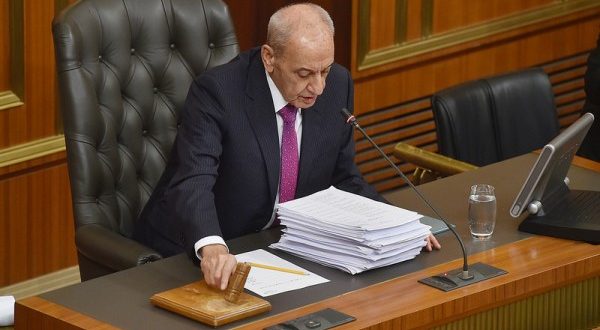Parliament Wednesday repealed Penal Code Article 522, known as the “marry your rapist law,” following years of campaigning by women’s rights advocates.
Adopted from the 1810 French Penal Code, the law exonerated a rapist if they married their victim.
The abolition was welcomed by concerned organizations, however many said yet more needs to be done, particularly in regards to Penal Code Articles 505 and 518, which remain contentious.
Article 505 pardons statuary rape – sex with a minor – if the perpetrator then marries the victim, while 518 dictates that if a virgin is raped with the intention of marrying the victim, the rapist can escape punishment.
“We shouldn’t fall into this trap. MPs only want to make themselves look good,” Maya Ammar, communications manager for KAFA Enough Violence and Exploitation.
“When you look at the big picture, women’s rights in Lebanon are not that good.” KAFA, Arabic for ‘enough,’ is amongst the NGOs that have led the efforts to have the law abolished. A draft law to repeal Article 522 was sent to Parliament in February for ratification after the Parliament’s Administration and Justice Committee agreed to scrap the article on Dec. 8, 2016.
Parliament’s decision comes after the Jordanian parliament abolished a similar law on Aug. 1 this year.
MPs began Wednesday’s morning session at 11:30 a.m., after which Prime Minister Saad Hariri and Speaker Nabih Berri held a closed door meeting.
In addition to repealing 522, Parliament also approved a long-awaited public-private partnership draft. Seven bills in total were passed, including the ratification of an international agreement.
Lawmakers also agreed to combine the Kesrouan and Jbeil governorates, though Future Movement MPs Fouad Siniora and Samir Jisr expressed their reservations on the issue.
During the morning session, Berri had said that Parliament would be converted into a workshop and would be meeting on a weekly basis in order to tackle pending national issues.
After the 2:30 session, Free Patriotic Movement MP Ibrahim Kanaan promised to grant Lebanese Army veterans and the families of deceased servicemen higher pensions, as per their demands.
“Is it reasonable to burden the [state] treasury with LL4 billion [$2.65 million] for NGOs at a time when the state wants to implement austerity measures [on] retired employees and veterans?” Kanaan said. Prior to the legislative session, Berri had met with MP George Adwan and MP Kanaan who heads the Parliamentary Finance and Budget subcommittee.
Veterans’ compensation is but one of the fiscal issues challenging the state. President Michel Aoun is irritated that the state budget was not passed prior to agreeing on the salary scale and accompanying taxes.
The private sector, the Association of Banks in Lebanon and the Kataeb Party urged Aoun to return the two laws to Parliament for further deliberations. During a legislative session last month, Berri and Hariri the salary scale and taxes were passed and signed by Berri and Hariri, yet they still require Aoun’s signature before they are to be published in the official gazette and converted into law.
 Lebanese Ministry of Information
Lebanese Ministry of Information



